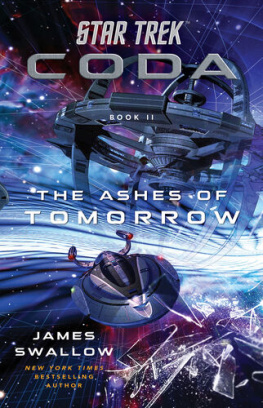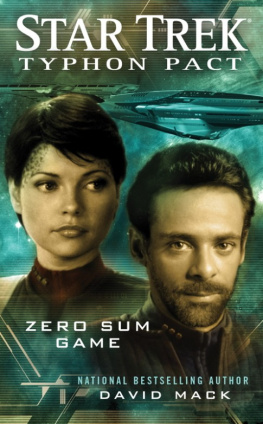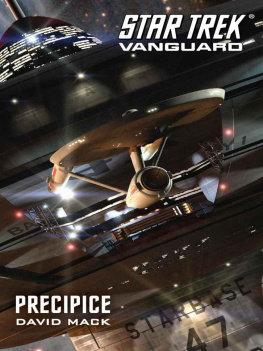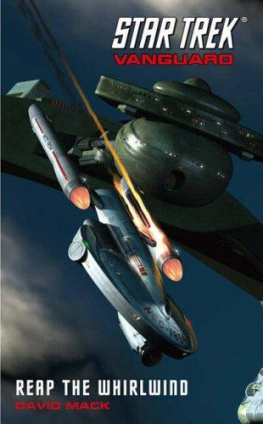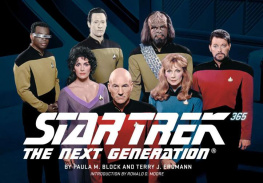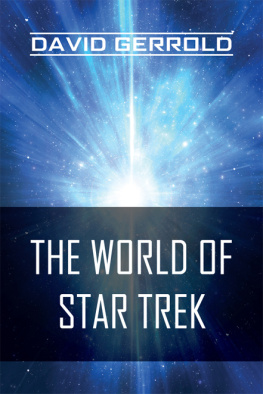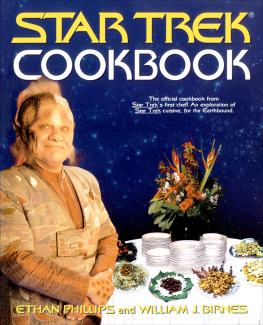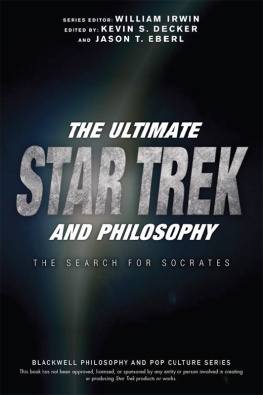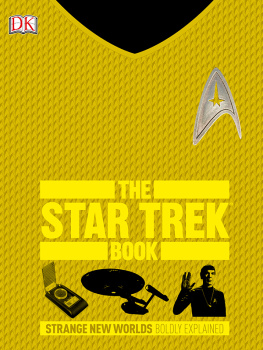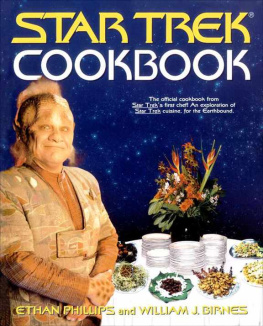ACKNOWLEDGMENTS
My first thanks, as always, are to my wife, Kara. Her support and encouragement during the writing of this novel were essential. I dont know what I would do without her as my sounding board, cheerleader, and dinnertime therapist.
This is the thirty-sixth novel I have written, and my twenty-ninth for Star Trek. Of them all, this one has been the most difficult to write. Not just because of its content, but also the circumstances that coincided with its development and creation. Those included, but are not limited to, the global COVID-19 pandemic; the deaths of my longtime idol Neil Peart of Rush, my mother, and my friend and fellow Star Trek author Dave Galanter; and, last but certainly not least, a tumultuous election followed by a seditious, violent attack on the U.S. Congress.
Thats not to discount the challenge presented by the material itself. The ongoing shared literary continuity of the Star Trek novels extends back at least to July 2001, with the publication of the Star Trek: Deep Space Nine novel Avatar, Book I, by S. D. Perry. That tome marked the beginning of the books serialized DS9 post-finale continuity, an effort that in time expanded to encompass many of the Star Trek novels published by Simon & Schuster between 2003 and 2020. Over a span of nearly two decades, twenty-five authors collaborated, either directly or through the Star Trek books editors, to craft this intricate shared literary continuity.
Part of what made that possible was the absence, after Star Trek Nemesis, of any new Star Trek feature films or television series set in the twenty-fourth century or later. Because no onenot the authors, editors, or licensing executivesexpected there to be more films or series continuing the narratives of Star Trek: The Next Generation, Star Trek: Deep Space Nine, and Star Trek: Voyager, those of us creating the novels were afforded greater freedom to carry those series characters stories forward, to new developments and new adventures.
Then came Star Trek: Picard.
Within a few episodes, it became clear that the literary continuity we had conceived and crafted for nearly twenty years could not be reconciled with the future described in Picards backstory. One revelation after another pushed our vision of the late twenty-fourth century farther and farther out of concurrence with the newly established canon.
One of the core tenets of licensed Star Trek fiction is that it must make every effort to be consistent with canon as it exists at the time of each works creation.
Knowing that there were at least two more seasons of Star Trek: Picard coming our way, I and several of my fellow Star Trek authors realized we had a problem. Either our labors of two decades would be cast aside, abandoned in medias res, or else we would need to find a way to bring them to a conclusion. Not wanting to see our work end on cliffhangers, and not wanting our readers to feel as if their many years of support had been for naught, James Swallow and I hatched a plan to build an epic finale for the literary continuity. Soon afterward, we enlisted fellow Star Trek novels veteran Dayton Ward to join our secret cabal.
This was the beginning of what Dayton dubbed The Plan.
I should say at this point that I could not have asked for better collaborators than James and Dayton. They are as generous as they are talented. As we cooked up ideas for what became this trilogy, no one got possessive about their ideas. We eagerly pushed some of our best inspirations to one another, built upon one anothers suggestions to plot out the story, and kept in mind at all times that this needed to be a team effort.
Whether Coda succeeds in honoring the twenty years of imagination and labor that led us to this point will be decided by critics and readers, after its too late for any of us to fix it.
Some of the fellow Star Trek authors whose works have been part of this epic adventure include Una McCormack (whose Star Trek: Picard novel The Last Best Hope is referenced in this books epilogue, aka the Grace Note), Christopher L. Bennett, David R. George III, S. D. Perry, Kirsten Beyer, Greg Cox, Heather Jarman, Olivia Woods, Michael A. Martin, Andy Mangels, Keith R.A. DeCandido, Geoffrey Thorne, Peter David, Michael Jan Friedman, Robert Greenberger, Kevin Dilmore, Jeffrey Lang, Andrew Robinson, J. G. Hertzler, William Leisner, David Weddle, John Jackson Miller, Paula Block, Terry Erdmann, and Robert Simpson. They are giants all, and we have been honored to stand upon their shoulders.
Our editors deserve praise for their roles in this endeavor. This crazy journey began with Marco Palmieri, who brought serial continuity to the Deep Space Nine books. John J. Ordover and Margaret Clark adopted it for Star Trek: The Next Generation and Star Trek: Voyager. In time, the shared continuity made it into various series, including Star Trek: Titan, Star Trek: S.C.E. (aka Star Trek: Corps of Engineers), edited by Keith R.A. DeCandido and John J. Ordover, and even Star Trek: Vanguard, which was co-created by Marco and later passed into the stewardship of Jaime Costas and then Margaret. Last but not least, senior editor Ed Schlesinger has been our ringmaster through all these years, keeping all of us on time and on budget.
None of this would have been possible, of course, without the explicit approval and support of the Star Trek Licensing team, who have without fail been some of our most ardent champions. At the start of this literary odyssey, that department was headed by Paula Block. For many years now, however, that role has been occupied by John Van Citters, currently Vice President of Star Trek Brand Development for ViacomCBS Global Franchise Management. Both Paula and John have been trusted partners in making the shared literary continuity the best it could be.
Another vital member of our team is Scott Pearson. For several years now, Scott has worked as both an author and a copy editor for the Star Trek books, but he and I go way back. Scott has been my drinking buddy at Shore Leave, my partner in hijinks at the Star Trek Original Series Set Tour, and my reliably grumpy long-distance compaero. Were lucky to have him as our copy editor, and I am fortunate to be able to call him my friend.
As I noted earlier in these acknowledgments, one of the emotional blows I endured this year was the death of Neil Peart, percussionist and lyricist for Canadian progressive-rock trio Rush. Neil and his work have been an artistic and personal inspiration to me since I was twelve years old. I never had the privilege of meeting Neil, though we did briefly exchange emails back in 2007, after I gifted him signed copies of my first two full-length Star Trek novels, which featured a character named in his honor.
Consequently, when I first discussed with Dayton, a fellow die-hard Rush fan, my ideas for what would become this trilogy, I knew that it would be important to me to find a way to make this tome both a conclusion to a twenty-year, multiauthor collaboration and an homage to an artist whose works and personal ethos have been fundamental in guiding my own creative path. In time, I began to see the threads weave themselves together. The sentiments of The Garden, the last song on Clockwork Angels, the final studio album by Rush, echoed in an eerie way the last words of Leonard Nimoy on Twitter, as well as bits of dialogue about time, in a number of the Star Trek: The Next Generation feature films.
Once I discovered that, I knew Id found my theme.
Those who have perused the acknowledgments of my early Star Trek novels might recall that musicin particular, film and television soundtracksis essential to my process when Im writing. That has never been more true than it was while writing this book. While there were tracks from many albums and composers in the inspirational mix for this project, the work of one composer has stood out from the rest: that of Lorne Balfe. Ive found his score for

